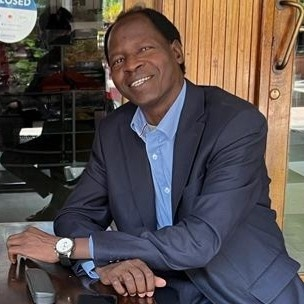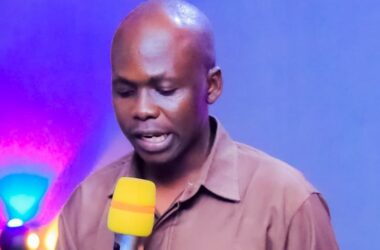By Akol Miyen Kuol
Knowledge is what enables us to understand ourselves and the environment we are living in or the environment surrounding us very clearly. And one of the best means of learning, so that we may live better, is through reading.
Quite a number of our citizens who know how to read and write may argue that the economic and financial situation cannot allow them to pay attention to the culture of reading or allocate some budget for buying books, magazines and newspapers.
Of course, many of our people will try as much as they can to focus on or channel the little money they get from their salaries that come late, and even when they come late, it is never enough to cater for the basic needs of the family.
It is logical that the family will first prioritize paying the house rent, school fees for the kids – for those who have kids – and provide the family with food to eat, drinking water, electricity, transport, and health services for that matter.
However, as much as the needs that we mentioned above are very important – especially food – reading is equally important. Food helps builds our bodies and keeps us alive and moving and going about our daily activities.
At the same time, reading provides us with knowledge, and that knowledge helps us have a better understanding of life and also how to live better.
As the English philosopher Francis Bacon said: “Knowledge is power”. Indeed! Knowledge is a very important power and that is why each and every human being must have access to education. Also, primary and secondary education must be available, compulsory and free for all.
It is important to note that educated people can handle their issues and manage their lives much better than those ones who did not get the education opportunity. That is also why it is very important for any given government to give equal opportunities for boys and girls to go to school.
More importantly, it is imperative for parents to spearhead the culture of reading and they should lead by example – especially at home – by becoming good readers. One other good thing that they need to do as parents for their children, is to establish family libraries or home libraries.
Such a culture will encourage the children to be book lovers and good readers. This is a healthy culture because those who read extensively can better and easily solve problems that they encounter in their daily life. Be it social, economic, financial, political, environmental, educational, scientific, technological or business issues.
So, reading extensively helps us in problem-solving and conflict management. Because most of the problems that we encounter on a daily basis happened before and other writers, historians, researchers and experts wrote about them and documented them in books.
Of course, sometimes problems and issues differ in degree from one country to another and from one culture to another. However, being a good reader will strengthen your problem-solving skills.
Superpower countries managed to be in control of the world due to their scientific and technological advancement and economic, financial and military power.
So, their control over the world – on Earth and in space – is a direct result of their knowledge, skills and information, which they acquired throughout the years and through reading. This knowledge was passed on and it is still being passed on from one generation to the next one.
The knowledge of the advanced world on the world, space, life and beyond, developed throughout the years due to the accumulation of their knowledge and experiences. And all these experiences and knowledge are documented in books.
The people of the advanced world (scientific and technological nations), understand the importance of knowledge and information very well, and that is why they have old and modern libraries and museums, that contain and preserve it (knowledge).
The other positive thing about reading is that you can tour the world without living your home village, county, town, city or country. Also, reading can let you understand the past, and by doing so you will be able to understand your present well. This is because our present is an extension of the past.
Not only that, having a good knowledge about the past and present, can also help us predict the future. Because in most cases – the past, present and future – in a way – are interconnected.
Before I conclude, it is important to mention some of our prominent good readers, on top of them the late chairman of the SPLM and Commander-In-Chief of the SPLA, Commander Dr. John Garang de Mabior.
Others include Dr. James Wani Igaa, Angelina Teny, Prof Peter Adwok Nyaba, Nhial Deng Nhial, Pagan Amum Okiech, Dr. Lam Akol Ajawin, Dr. Majak D’Agoot, Rebecca Joshua Okwaci and Arthur Gabriel Yak.
Good readers from the young generation are quite a number, including Stella Gitano, Abraham Mariak Albino, Dengdit Ayok, Atem Simon, Boi John Awang, Malual Deng of Almaugif Daily Arabic Newspaper and Yitjuok Agwet, to name but a few.
So, where do we go from here?
For us to be practical, I would suggest the establishment of Public Libraries in the 10 states and three administrative areas of Pibor, Ruweng and Abyei. The ministries of higher and general education need to establish libraries in all schools in the 10 states and the three administrative areas.
Also, the two ministries of education need to appoint two chiefs to oversee the establishment of libraries in all schools in the country and the work of the two officials should be a supervisory role.
Finally, we encourage the media houses, especially South Sudan Broadcasting Corporation (SSBC), to create a fortnight program dealing with the promotion of the ‘Culture of Reading’, whereby a prominent intellectual or an official in the country or even a foreigner – including foreign diplomats – will be hosted to talk about the importance of the culture of reading.
In conclusion, if you don’t have money to buy a book, borrow it from a friend or relative and return it at a specific time. Let us adopt the culture of reading so that we can build our nation.
The author can be reached via Email: akolmiyen@gmail.com




